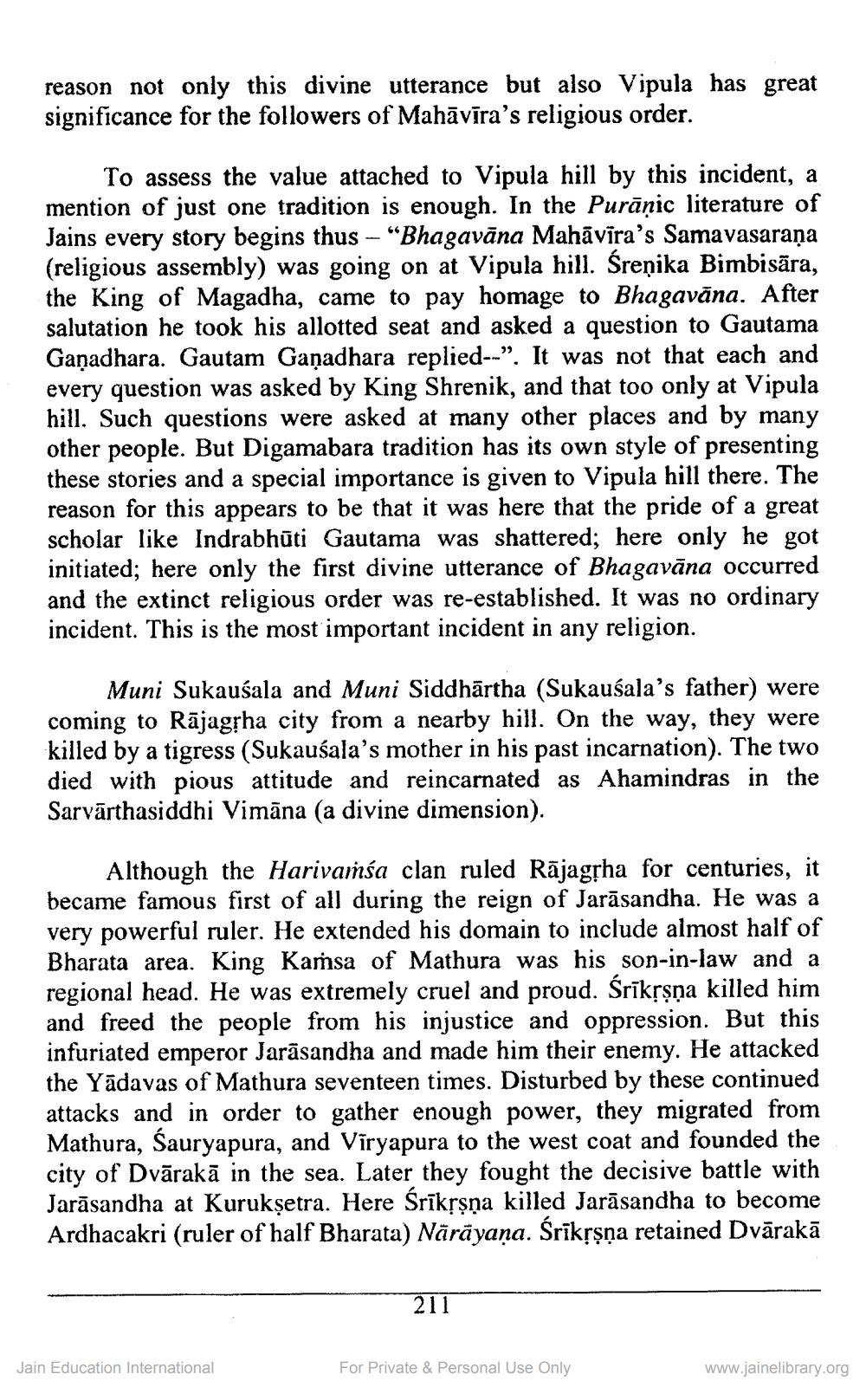________________
reason not only this divine utterance but also Vipula has great significance for the followers of Mahāvīra's religious order.
To assess the value attached to Vipula hill by this incident, a mention of just one tradition is enough. In the Purāņic literature of Jains every story begins thus – “Bhagavāna Mahāvīra's Samavasaraņa (religious assembly) was going on at Vipula hill. Śreņika Bimbisāra, the King of Magadha, came to pay homage to Bhagavāna. After salutation he took his allotted seat and asked a question to Gautama Ganadhara. Gautam Gañadhara replied--”. It was not that each and every question was asked by King Shrenik, and that too only at Vipula hill. Such questions were asked at many other places and by many other people. But Digamabara tradition has its own style of presenting these stories and a special importance is given to Vipula hill there. The reason for this appears to be that it was here that the pride of a great scholar like Indrabhūti Gautama was shattered; here only he got initiated; here only the first divine utterance of Bhagavāna occurred and the extinct religious order was re-established. It was no ordinary incident. This is the most important incident in any religion.
Muni Sukauśala and Muni Siddhārtha (Sukaušala's father) were coming to Rājagha city from a nearby hill. On the way, they were killed by a tigress (Sukausala's mother in his past incarnation). The two died with pious attitude and reincarnated as Ahamindras in the Sarvārthasiddhi Vimāna (a divine dimension).
Although the Harivainsa clan ruled Rājagțha for centuries, it became famous first of all during the reign of Jarāsandha. He was a very powerful ruler. He extended his domain to include almost half of Bharata area. King Kassa of Mathura was his son-in-law and a regional head. He was extremely cruel and proud. Śrīksıņa killed him and freed the people from his injustice and oppression. But this infuriated emperor Jarāsandha and made him their enemy. He attacked the Yādavas of Mathura seventeen times. Disturbed by these continued attacks and in order to gather enough power, they migrated from Mathura, Sauryapura, and Viryapura to the west coat and founded the city of Dvārakā in the sea. Later they fought the decisive battle with Jarāsandha at Kuruksetra. Here Śrīkşşņa killed Jarāsandha to become Ardhacakri (ruler of half Bharata) Nārāyaṇa. Śrīkṛṣṇa retained Dvārakā
211
Jain Education International
For Private & Personal Use Only
www.jainelibrary.org




